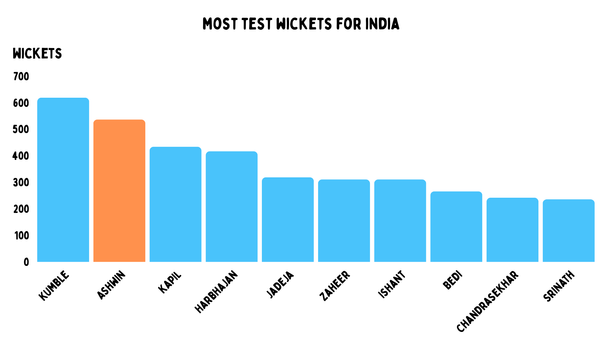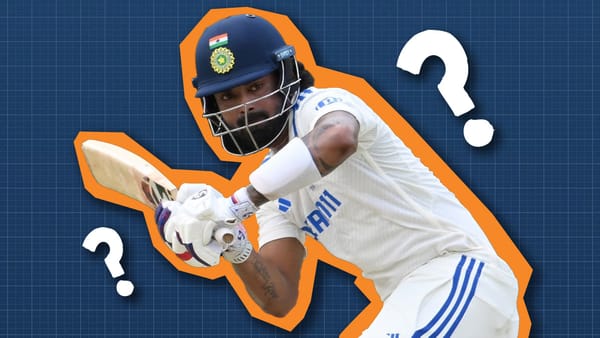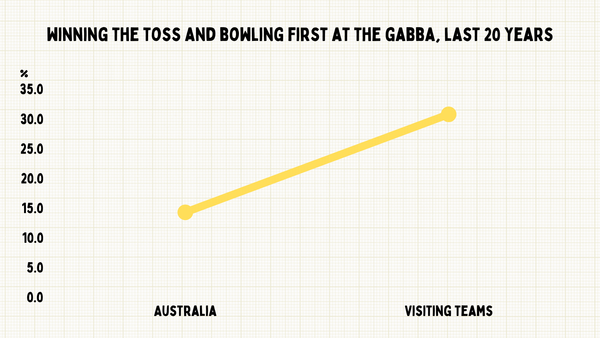Batting the fuck on
The claps start slow and quiet, by the time Jofra Archer is at the crease, it’s quick and loud. His feet land, making a scratching noise…
Bat the fuck on
The claps start slow and quiet, by the time Jofra Archer is at the crease, it’s quick and loud. His feet land, making a scratching noise as he delivers. Then the other sound follows, it’s dull, too dull, it’s sickly. Bumble says “Oh dear”. Depending on the angle, some in the crowd cheer, others swallow.
Hits make noises. Often it’s the noise you remember, you can never watch the replay again, but that sound stays with you. And the next time someone is hit the same way, you feel worse because the last one never went away. It’s a collection of all those noises you’ve heard and never been able to unhear.
That’s us, watching, listening, feeling.
The batsman is different. He wants to prove he’s ok, bat on, it’s trained into Australians from a young age. You could see this on Smith’s face as he was tested on the field. He was doing everything he could to stay out there. He didn’t want to leave, even when the doctor asked him too.
“We’ll get someone out here tough, we’ll get a Queenslander out here” is what Allan Border said to Dean Jones in Chennai. Jones would make 210, and end up in hospital on a drip. But that story isn’t passed on as a cautionary tale, it’s passed on as warrior code. You stay out there, you bat on, you are Bill Woodfull’s heart, Rick McCosker’s jaw, Michael Clarke’s arm and Dean Jones complete lack of bowel control. You’re not a cricketer, but an Australian cricketer, you bat the fuck on.
Ed Cowan went out to bat straight from vomiting before making a golden duck in his last Test. Because that’s what you do.
And it doesn’t matter if you’re an Australian cricketer or a cricketer from Australia, this is part of what we’re fed. A legendary story from my club was when I bowled a full toss, and the short leg fielder was hit in the head and went out cold. Off his head the catch was taken, and a bunch of us carried him off. He woke around deep mid-wicket, asked what happened, and then he shook us off and went to pad up.
One time I saw a kid get hit in the chest and scream in pain, a senior player shouted, “It’s a hard fucken ball, get used to it”.
In our competition, Hadfield were the toughest team because they had a family who didn’t wear gloves. One of their players was hit in the jaw, bent down, picked up the ball and tossed it back to the bowler, “thought you bowled faster than that, son”.
And when you were injured, the one thing you wanted was to get back out there. You had too. Any hesitation and you were soft. If anyone on your team thought you were ‘dogging it’ that stuck with you. So you’d play on through injuries, as long as you weren’t actually bleeding on the pitch, you were fine.
Broken fingers never stopped me, I’d let random players put it back in place. One indoor game the medial in my knee went in the first over, I still completed the game. The medial went again in a basketball game, I came off the bench three times in the second half.
It started when I was a ten-year-old wickets keeper for my primary school team. I was the youngest on the team, and made vice-captain, and none of the older kids liked this. They picked apart my game daily. Nothing too horrible, but you’re ten, a bunch of kids who can punch you in the face pretty hard crowd around to tell you you’re shit leaves a mark.
We had a bowler who bowled round arm and sometimes the ball didn’t bounce. One of those skidded through and two bounces on the way to me. The second one hit a rough patch of grass and flew up into my stomach. The wind left my body, and I felt like I’d never breath again. I’d never been really hit by a ball like that.
But I couldn’t stop because I knew what they’d say. So with tears coming down my face, I played on. I shouldn’t have been out there, I couldn’t crouch properly, and the next ball that skidded through hit me in the arm and let through byes. More fumbles came, and the team came to me after everyone, saying it was ok, there’s so shame in admitting you can’t go on.
All I saw was the same faces that thought I was soft.
Years later no one would call me soft, but when I’d get injured those faces and thoughts would come back. I’d play on, not matter what. Getting myself into the mental state that was unhealthy, dangerous, and often wouldn’t help the team. It didn’t matter, I was soft at 10, I would be soft forever, and I’d always try to prove it wrong.
If you asked I was doing it for the team, but I never was, it was for me. Often I’d hinder the team by being too injured to go on, but just strap it uptight, it’ll be fine.
That was how Smith looked in the middle. But there was another time you saw him in the change room. There is always something ghost-like about players deep in the cricket change room. The long lens camera gives them this otherworldly look, and people walk around them they’re not there. Smith added something of his own, a vacant stare. At this stage he’d passed his many varied concussion Tests, but that stare, it just didn’t look right.
Smith had been sitting down for ten minutes when Siddle was dismissed. Brian Murgatroyd, Cricket Australia’s media manager was at pains to say, “Rest assured, he wasn’t pushed out the door. He was very keen to bat.”
Ofcourse he was, he’s Steve Smith, he’d be keen to bat if hellfire was reigning on him. While in the change room he was moving his neck around to watch more cricket. The same neck that a ball almost exploded 30 minutes earlier.
The question isn’t whether he was pushed out there, but whether anyone pushed against him going out.
When in the middle slogged Chris Woakes second ball, it’s not like Smith doesn’t hit to leg all the time, but this was in the air and uncalculated, it wasn’t Steve Smith, international cricketer, it was Steve Smith, member of his club’s thirds who runs a local gardening business.
Now, it’s the hit on the neck wasn’t the only thing Smith had against him. He’d also been struck on the arm and that could’ve meant he was struggling to bat in his orthodox unorthodox style. But he did also play a smoking back foot cover drive.
But then Smith did something bizarre, and something that a sore arm shouldn’t change. He left a ball that could have only ever been hitting the stumps, which is odd because he has impeccable judgment on what to leave and he never gets out. And then he walked from an LBW, before stopping when Pat Cummins told him to review, calling for it, and then leaving the ground, anyway. That is all bizarre. And none of it is bizarre in how Steve Smith is often bizarre.
Ofcourse many of us can’t help but think, what a warrior, a legend, all the war stuff, what is he made of, he’s a freak, gutsy call. We can’t help but look at the bravery, the sacrifice, and toughness. But it’s more than that.
It just didn’t feel right. You’re left wondering if — no matter what he had been cleared of — he should have been out there. If the pressure he’s always felt to do what the team needs, that programming from birth pushing him back out in the middle when he wasn’t right. When you think about him out there, you might respect his courage, but still have a different kind of sick feeling. That’s us, watching, listening, feeling.


